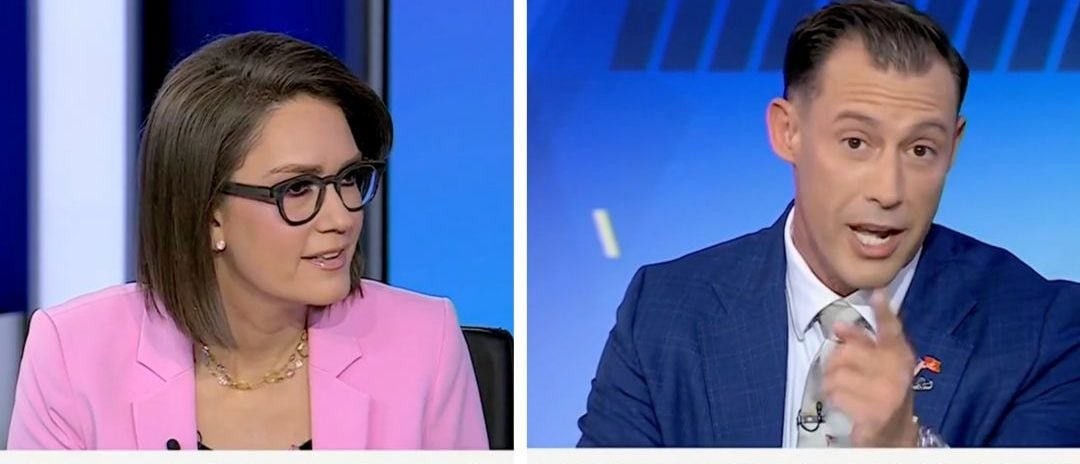The upcoming state primary election will likely determine who will be Maricopa County Treasurer.
Whoever ultimately wins the seat will act as the county's tax collector and protect the county's funds.
They are responsible for disbursing funds from the county treasury and pursuing those who do not pay their county taxes. They receive all county revenues, manage trust accounts, and invest county funds under the direction of the County Supervisor. They also serve as treasurer for all schools and special districts within the county.
There are two candidates running for the post: Republican incumbent John Allen and challenger William Lichtschinn.
Arizona Elections:Read full coverage of the county race
Allen, who was elected in 2020, is seeking to retain her seat. She previously served as an Arizona state representative and House majority leader. Lichtschinn, a certified public accountant and U.S. Navy veteran, is in his first foray into politics.
No candidates from other officially recognized parties are running, so whoever wins will effectively take the seat.
The Arizona Republic asked each candidate about their campaign approach and how they would address key issues if elected. Here are their answers: Responses may have been lightly edited for clarity and brevity.
Experience: How can voters trust that you are prepared to lead the Treasurer’s Office?
The Finance Department is responsible for collecting property taxes and managing government funds. How will your previous experience prepare you for the role?
John Allen: I have a degree in Business Administration from Arizona State University. This is an elected position, but much of the work is similar to business today. My experience as Majority Leader of the Arizona House of Representatives gives me a deep understanding of the letter of the law, how to follow the law, and how to enforce the law to reflect the will of the voters – in other words, how to do the right thing in the right way.
As the incumbent, I have managed the Treasury Department for the past three years. My management philosophy comes from my upbringing. My father owned a heavy equipment sales company, Sam Allen Modern Machinery, and I run the County Treasury Department like a family business, with respect and clear goals. We strive to help every taxpayer.
William Lichtschinn: I am a Certified Public Accountant with extensive experience managing accounting and finance departments. I have overseen large, complex accounts receivable operations and large investment portfolios, including government entities with their own technical reporting frameworks.
Part of a CPA's basic knowledge is to have a thorough understanding of government accounting procedures. Having a CPA in this role is essential to ensure accuracy, accountability, and maintaining public trust.

Efficiency: How would you improve the Treasury Department’s operations?
What suggestions would you offer to improve customer service and efficiency in the office?
Allen: Before I tell you what I want to do next, I want to highlight some of the improvements we've already made in my first three years here: We've completely revamped our cash registers and research counters. When you come into the store, every cashier is available to help you with any questions you may have. For even the most complex issues, we have experts on hand at all times. We work hard to make sure you never leave without complete answers.
When I took over the office, every available space was filled with file cabinets and research was done manually and very time-consuming. Over the last two years, with the help of very specialized equipment, we have digitized 350,000 documents that are searchable by name, address and parcel number. These are just some of the positive improvements.
The next big thing is new software. We still work long hours answering questions, correcting errors, doing billings, changing addresses. Our culture demands that things be done as quickly, in the moment, and accurately as possible. New software makes that happen.
Lichtsin: “I have heard many stories of people who were dissatisfied with the customer service they received when trying to report issues or problems to the Treasury Department. Our primary obligation is to serve the public, and improving the customer service experience is my top priority when I take office. I will reduce wait times, improve response time, and use my experience working with various financial institutions to stay abreast of industry best practices.
Government Relations: How do you work with other county offices?
How will you work with other county offices such as the Recorder's Office, the Assessment Office and the Board of Supervisors to accomplish the primary functions of the Finance Office?
Allen: During my time serving in both the Arizona State Legislature and Maricopa County, I have always worked well with my colleagues while upholding the conservative principles I espouse. The office I work most closely with is the Assessor's Office and we get on very well. Neither office can perform its core functions without the other.
Next up is the Recorder's Office. Accurately tracking changes of ownership is very important to us, and we are constantly improving communication between departments.
The Board of Supervisors is different from the offices of Assessor, Recorder and Treasurer. We repeatedly do certain things as mandated by law. They oversee and fund what they think is working well. I spend a great deal of time making sure the County Supervisor and Board understand what I am doing and why, and I also want them to understand my vision for the future of this office. So far, this has worked well.
Lichtsin: Given the gross negligence in our county’s recent property tax litigation that has left our public schools, community college and fire department in ruins, it’s clear we need a leader who will promote a culture of collaboration in county government.
Many of our processes within county government involve multiple departments, providing an opportunity to verify and double-check the accuracy of calculations and documentation. This is standard practice in many industries, but it's a real problem in county government. I've already had many conversations with other candidates about how we can leverage each other as a resource for cross-departmental feedback on important financial decisions.
Financial Planning: How will you approach investing in the county?
The Finance Department works with other county leaders to maintain the county's investment portfolio. What is your approach to investments?
Allen: I'm happy to ask about the portfolio. It was in a mess when I took over. The account had been completely out of balance for years, and after a complete reconciliation we had to recoup $15 million in misallocated interest.
We currently rebalance our cash accounts daily and our portfolios monthly. Our interest income has increased from $64 million in 2020 to $210 million last year and is still improving. And the investments are much less risky than they used to be, so our income has increased and our risk has decreased.
We have improved our cash flow monitoring system, which is the amount of money we need on hand on any given day to meet the county's financial obligations. My office was keeping roughly $1 billion in our checking account to cover expenses. With real-time cash management, we've reduced that amount to $200 million. We can do so with peace of mind, knowing we always know how much we need and when we'll need it. This has significantly increased the amount of money we have available to invest.
In the near future, we hope to enter the corporate bond market. Success in that market requires expertise that we do not currently possess. I am exploring available options and will continue to keep you informed.
Lichtsin: Although the County is generating seemingly high dollar returns given the size of our portfolio, our investment performance is dismal — far below the standards of comparable agencies.
Other government agencies have the ability to invest funds in opportunities that will generate higher returns. I would suggest lobbying the Legislature to allow investment opportunities that will generate higher returns while still preserving liquidity above all else and maintaining a very conservative portfolio.
The County’s investment portfolio is resident money, and it is essential that assets are operated safely and productively to keep property taxes low while still being able to fund vital government services.
Elections: How will you ensure ballots are kept safe in your office?
The Treasury Department is tasked with safeguarding election ballots during the retention period following each election. How do they manage this responsibility and ensure the security of ballots in an era of increasing political polarization and voting conspiracies?
Allen: You'll love what I did with the Vote Safe. On my first day of being sworn in, I went to see the Vote Safe. It was a little joke. It was a big room in the basement with two big iron doors. There were two keys to the room, one on a key ring for one of the managers and one in a drawer in someone's office.
We currently have cameras with motion sensor alerts inside and outside the building, an alarm system, locks controlled by two managers that keep the keys in two different secure locations, a log sheet of everyone who enters and leaves, and no elected official, including myself, can enter alone.
Lichtsin: Transparency. Public transparency is paramount to ensuring public confidence in the Secretary of the Treasury's commitment to safeguard past ballots.
Our recent election was a breach of the American people's trust in our voting process. I will ensure that the Treasury Department is committed to transparency and accountability so that every American can have confidence that their voice is heard, their vote is counted, and accurate records are kept.
A personal question: Who do you look up to?
Which public figure, past or present, do you most admire and why?
Allen: Billy Graham. He was a godly man who lived with integrity and purpose.
Lichtschinn did not answer the question, saying he did not believe it would be useful to voters as a means of judging a candidate's fitness for office.
















